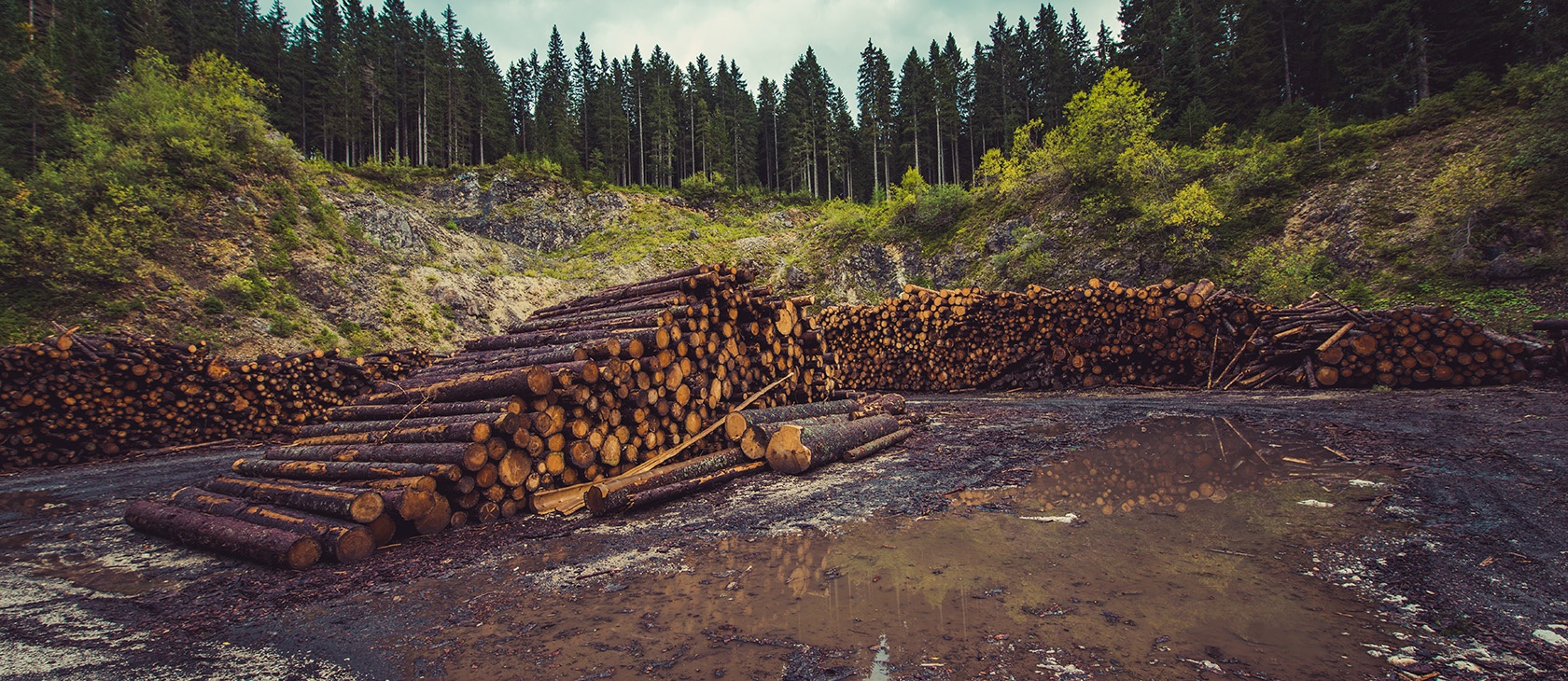The recent papal encyclical Laudato si’ would have been a more rounded document if it had considered the importance of private property for the protection of the environment.
A stark example of how the lack of private- property rights can have an impact on the environment is given by the dramatic difference between forest cover on the two sides of the border between Haiti and the Dominican Republic. There is a distinct difference between the ecology of the two areas. As the United Nations puts it, “Environmental degradation in the worst affected parts of the Haitian border zone is almost completely irreversible, due to a near total loss of vegetation cover and productive topsoil across wide areas.” The Haitian side of the border is subject to almost complete loss of environmental resources. The same United Nations document reports that Haiti has 4 percent forest cover in contrast to 41 percent in the Dominican Republic.
Private ownership and the institutions that surround it provide the incentives for sustainability. Under private ownership, the value of a piece of land at anytime will reflect the present value of all that can be yielded from the land in the indefinite future. The costs of damaging land in private ownership are huge because those costs can relate to all possible lost future production and not just to lost production over a year or two. Furthermore, land will not be nurtured and people will not invest in the land if they believe it is going to be polluted or plundered by others. Private-property rights will often (though not always) need to be protected by good governance, good courts systems and so on that can be provided by governments (quoting from Centesimus annus). However, the absence of private-property rights properly enforced – not their presence – can be the problem when it comes to environmental protection. As Sebastien Marchand puts it, “[I]nstitutions such as property rights influence the importance of opportunity costs generated by deforestation. Therefore creating appropriate institutions allows for the reduction of uncertainty in exchange and results in reduced transaction and production costs of long-term activities, such as sustainable forestry. The poor quality of institutions in developing countries may thus constitute a major impediment for forest conservation.”
Private ownership and the institutions that surround it provide the incentives for sustainability.
In effect, the Haitian side of the border is a huge, ungoverned and unowned commons. Haiti has been for much of the recent past a failed state (ranked eleventh in the Foreign Policy Fragile States Index) and has a terrible record of corruption (175 out of 182 in the Transparency International Corruption Perception Index). In relation to Haiti, the 2016 Heritage Index of Economic Freedom states that “clear titles to property are virtually non-existent.” By no means is the Dominican Republic perfect, but it ranks about halfway up the latter index when it comes to the protection of property rights.
Haiti and the Dominican Republic are a particularly interesting contrast because of their proximity to each other. However, there is abundant evidence that the lessons from this example can be generalized. For example, Claudio Araujo and his colleagues argue that “insecure property rights in land drive deforestation in the Brazilian Amazon.” The authors demonstrate a causal relationship that arises through several channels. Their results are strong and lead to the conclusion that an exogenous escalation in property rights in security brings a significant increase in the rate of deforestation.
Interestingly, another paper that draws the same conclusions relates the problem of the lack of secure property rights to past imperial activity. David Novoa concludes, “[S]tronger property rights encourage less deforestation controlling for a number of variables.” He also argues that former British colonies have significantly better deforestation records (i.e., less deforestation) than former Spanish colonies. He believes that this result may have arisen because different colonial regimes had a different impact on the long-term security of property rights. Novoa argues that British regimes established local ownership of the forest so that local people (pioneers) had direct control over forest resources. “Thus, the British Colonial system provided incentives for joint maximization of the net present value of timber and nontimber forest products. In addition, the system promoted the internalization of external benefits that did not accrue to the owner of the land such as conservation of the soil or prevention of floods. Therefore, forest land use value tended to be comparatively higher than [in] a system of ill-defined property rights, consequently encouraging less deforestation.”
To make matters worse, because trees are often government-owned resources on private land, the private owners of the land have no incentive to manage them, and the owners take every opportunity possible to clear the forest so that the land can be used for private productive purposes. In this situation, the trees are utterly without value to the owners and cannot be managed sustainably.
This problem of a lack of well-defined and enforced property rights leading to environmental degradation is repeated in relation to a wide range of environmental resources in many different circumstances.
With respect to the statement in Laudato si’ that “[t] he natural environment is a collective good, the patrimony of all humanity and the responsibility of everyone. If we make something our own, it is only to administer it for the good of all,” the general position held by Aquinas, the late Scholastics and the early social encyclicals would be that by allowing people to make something their own, that something is more likely to be administered for the good of all. This principle is so crucial in relation to environmental goods and so widely discussed among economists examining environmental problems that it should have been an important subject of discussion in Laudato si’.
Many other aspects of the relationship between property rights and the environment are important and, though not necessarily appropriate for discussion within an encyclical, might form a research agenda for Catholic scholars going forward. For example, where there are well-defined owners of an environmental resource in a regime characterized by good governance and juridical systems, individuals or corporations are less likely to damage property they do not own. In a regime of well-protected private- property rights, damage to one’s neighbor’s property will lead to prosecution or a requirement for compensation. This will not be the case where environmental resources are effectively unowned, as indicated by the rainforest examples given earlier.
There are broader ways, too, in which a regime of strong private rights in the context of good governance can help protect the environment. First, a country with good governance, effective rule of law and enforcement of private property in general is more likely to be able to protect effectively those environmental goods where limits do need to be put on commercial exploitation for the purposes of environmental protection. A state that performs well the task of enforcing property rights is more likely to be able to regulate the use of private property if that is deemed necessary, because such regulation requires uncorrupt and efficient legal systems, law enforcement and administration.
“It is also worth noting that economies broadly based on the principles of economic freedom and private property are more likely to prosper.”
The absence of these aspects of good governance is probably the biggest threat to those environmental resources that cannot be commercially exploited and are regulated to promote conservation. Further analysis of Brazil by Sam Lawson suggests that such illegal forest destruction included deforestation in areas where those involved did not have land title as well as the flouting of regulations designed to limit deforestation. This example also illustrates the difficulty of resorting to government control of property in the name of environmental protection when private ownership is deemed to have failed. If the legal systems for the protection and regulation of private property are not effective, it is highly unlikely that the state will be able to manage resources effectively and escape serious problems caused by corruption and other features of bad governance.
It is also worth noting that economies broadly based on the principles of economic freedom and private property are more likely to prosper. And as countries become more prosperous, they tend not only to adopt technologies that are less resource intensive per unit of gross domestic product (GDP) but also to value environmental goods more. When a community has a choice between eating and deforestation, eating wins. In more technical terms, a clean environment is an income elastic good. One example of this effect relates to the emission of pollutants. In the United States, emissions, as measured by an index of six major air pollutants, have fallen by 65 percent per head since 1980. Indeed, no nation with an annual GDP per capita of more than $4,600 per annum had net forest loss in the period from 2000 to 2005. Though there is still net deforestation taking place in the world as a whole, the annual rate has more than halved – the rate was 0.08 percent between 2010 and 2015, fallen from 0.18 percent in the early 1990s.
This article is adapted from Philip Booth’s "Property Rights and Conservation: The Missing Theme of Laudato si’ in Pope Francis and the Caring Society" (Independent Institute 2017).




